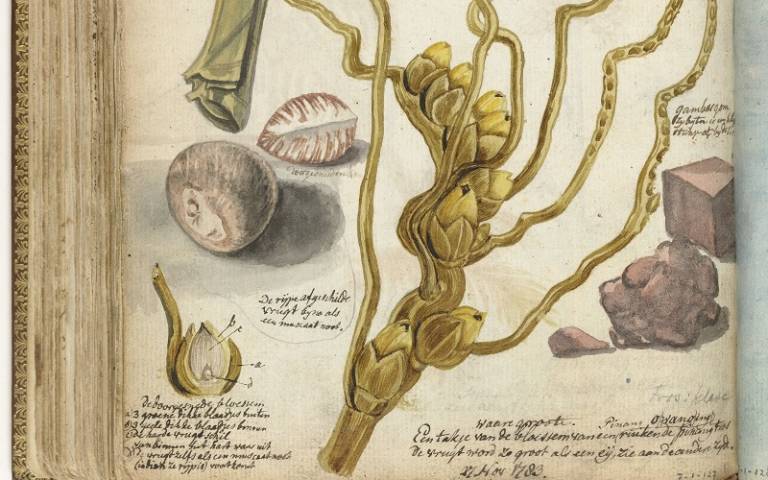In search of panacea: The Dutch East India Company and politics of the body in early modern Asia
18 October 2023, 5:00 pm–7:00 pm

What role did politics of the body play in the operations of the Dutch East India Company (VOC), an institution which amassed significant political power across the Indian Ocean over the course of two centuries? This project analyses the VOC as an institution that takes advantage of, restricts, or propagates medical expertise and goods in negotiations of power and as a tool of authority.
This event is free.
Event Information
Open to
- All | UCL staff | UCL students
Availability
- Yes
Cost
- Free
Organiser
-
Institute of Advanced Studies
Location
-
Executive Suite 103Engineering Front Building1–4 Malet Place, UCL, LondonWC1E 7LEUnited Kingdom
What role did politics of the body play in the operations of the Dutch East India Company (VOC), an institution which amassed significant political power across the Indian Ocean over the course of two centuries? This project analyses the VOC as an institution that takes advantage of, restricts, or propagates medical expertise and goods in negotiations of power and as a tool of authority. Batavia (present-day Jakarta) was crucial in its role as the VOC’s headquarters in Asia while also functioning as a medical entrêpot in the region.
My research maps the trajectories of mobile European and indigenous actors affiliated with the VOC and analyses the spaces in which they operated. I suggest that spaces such as the apothecary and the dispensary played significant roles in regional circulations of medical expertise and goods, where uses of plants for remedies and understandings about healthy living became increasingly contested. By analysing how these spaces of contestation and medical pluralism emerged, I also unpack how the concept of “Western” medicine became established over time, coinciding with increasing interventions of European trading companies in the Indian Ocean from the late seventeenth to early nineteenth century.
Image credit: Detail of Jan Brandes, Methodes voor het maken van sirih (Methods for making sirih), 1783, watercolour and pencil on paper, 195 x 155 mm, collection of Rijksmuseum, NG-1985-7-1-127.
About the Speaker
Melinda Susanto
PhD candidate at Institute for History, Leiden University
Her current research investigates how politics of the body played a role in social and political interactions between Asian and European actors across the early modern Indian Ocean, with emphasis on Sri Lanka and the Malay world. Her broader research interests include the visual and material cultures of science and technology and the history of natural history collections.
 Close
Close

